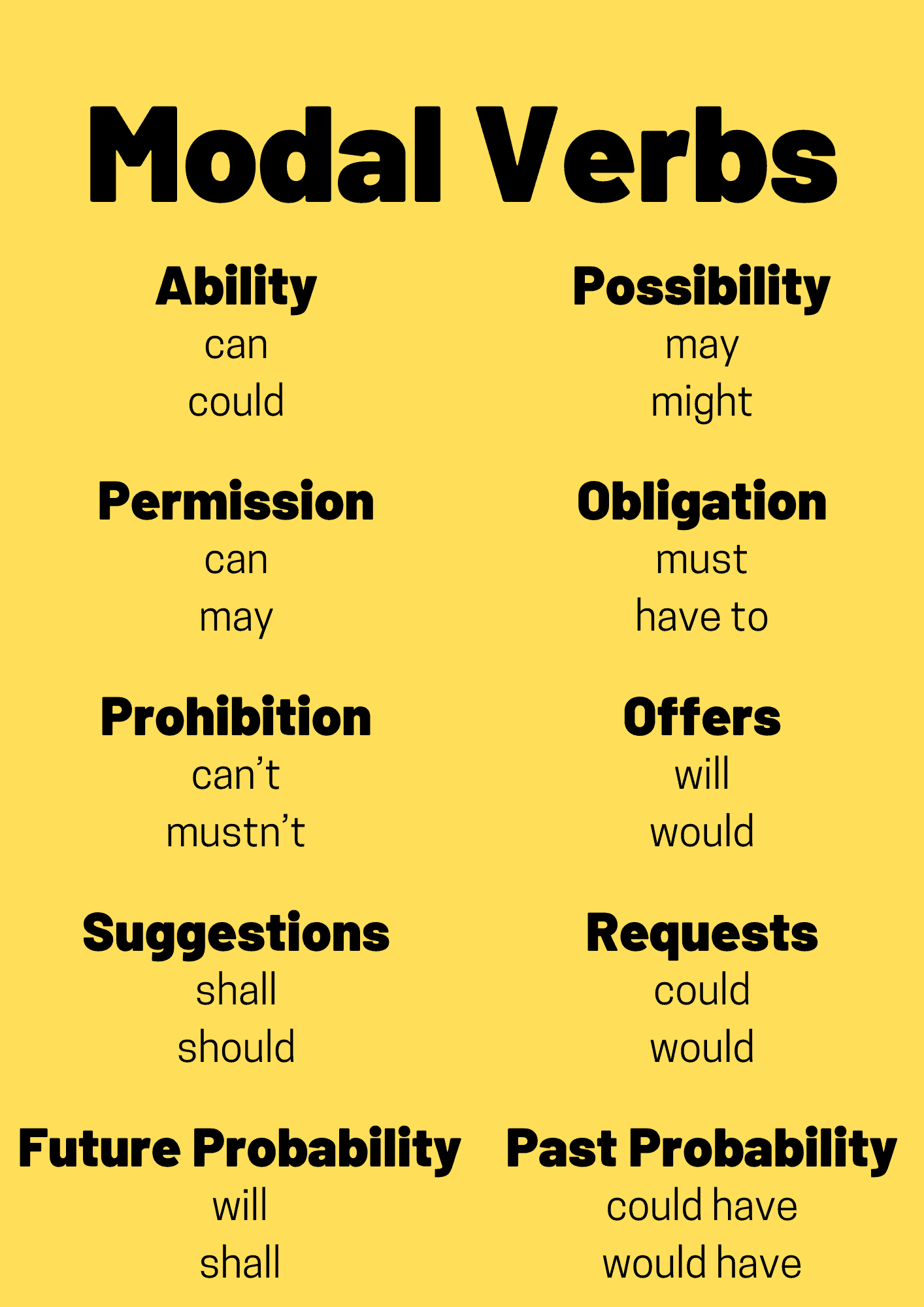Modal verbs are a type of auxiliary verb that express necessity, possibility, ability, permission, or obligation. They are used to modify the meaning of the main verb in a sentence. Understanding modal verbs is essential for effective communication in English.
There are several modal verbs in the English language, each serving a specific purpose. Knowing how to use them correctly can greatly enhance your language skills and help you express yourself more clearly.
All Modal Verbs List
The modal verbs in English include:
- Can
- Could
- May
- Might
- Must
- Shall
- Should
- Will
- Would
Each of these modal verbs has its own unique function and can be used in different contexts. For example, “can” is used to express ability, “must” is used to express necessity, and “will” is used to express future intent.
Modal verbs can also be used to make requests, give advice, or ask for permission. Understanding the nuances of each modal verb is important for using them correctly in conversations and written communication.
It is essential to remember that modal verbs do not have past or future forms. Instead, they are followed by the base form of the main verb. For example, “She can speak Spanish” or “You should study for the exam.”
Learning how to use modal verbs effectively will improve your language skills and help you communicate more confidently in English. Practice using modal verbs in different contexts to become more comfortable with their usage and expand your language abilities.
In conclusion, modal verbs are an important aspect of the English language that can help you convey meaning and express yourself more clearly. By familiarizing yourself with the list of modal verbs and understanding how to use them correctly, you can enhance your communication skills and become a more proficient English speaker.
